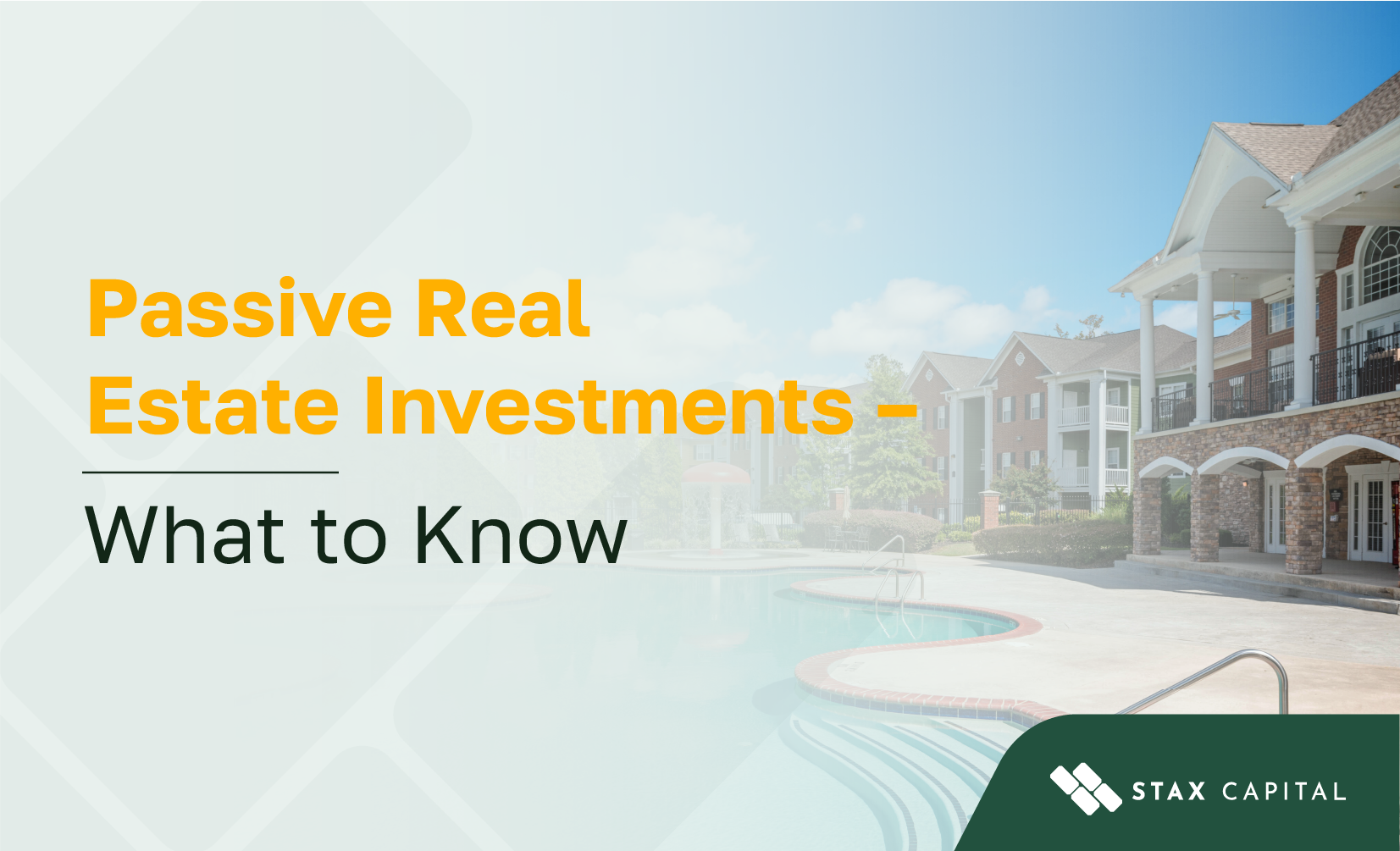Residential vs. Commercial Real Estate Investing: Which Is Right for You in 2025?

Exchange Tips
Residential or commercial? It’s the classic debate for aspiring real estate investors—and the stakes have never been higher.
Your choice will depend on strategy, not just personal preference. Understanding the differences is key to making the most of your investment.
This blog dives into risk, returns, and other critical factors to help you pick the right path for your financial future.
What Is Residential Real Estate Investing?
Residential real estate investing focuses on properties where people live, such as houses, apartments, and condos. Investors purchase these properties to earn rental income or profit from future sales. It's a practical choice for many due to the constant need for housing, making it a stable and often lucrative venture.
However, challenges like market changes, tenant turnover, and unexpected maintenance costs can impact profits. With good planning and management, residential real estate can help you work toward financial freedom.
What Is Commercial Real Estate Investing?
Commercial real estate investing involves buying and managing properties designed for businesses. These can include offices, retail shops, or warehouses. The potential for higher income comes from longer leases, which offer stability. But with this potential comes risks tied to economic trends and market needs.
Unlike residential real estate, commercial investments require handling larger properties and contracts. While this involves more effort, it also provides opportunities for greater financial rewards. However, you need to consider risks like economic shifts and higher management responsibilities.
Key Differences Between Residential and Commercial Real Estate
Investment Costs
Residential real estate is typically more budget-friendly for investors. A single-family home or duplex requires lower upfront costs and is easier to secure financing for than a commercial property. Commercial investments, like office buildings or retail spaces, need larger capital and involve higher costs for upkeep and insurance. While they may promise higher returns, they also carry greater risks when market conditions change.
Residential properties are ideal for new investors due to their accessibility. In contrast, commercial properties are better suited for those with larger budgets and long-term goals.
Risk and Returns
Residential properties are often perceived as having less volatility due to the demand for housing. However, tenant turnover, economic fluctuations, and localized market conditions can still impact income and property values.
Commercial real estate offers the opportunity for larger leases and a diversified tenant base, which may increase potential returns. However, these investments are also subject to greater economic and market risks. Commercial investors must be prepared for higher stakes and greater financial fluctuations.
Note: Returns are not guaranteed and may vary based on tenant stability and economic factors.
Management and Maintenance
Residential properties are generally easier to manage. A single-family home or a small apartment requires routine upkeep, making it manageable for individual investors or small teams.
Commercial real estate, however, demands more attention. These properties often include multiple units or large spaces, requiring professional property managers. Maintenance is also more complex, as it includes HVAC systems, elevators, or specialized facilities. Managing residential properties is pretty straightforward. On the other hand, commercial properties involve more challenges but promise higher potential returns.
Market Dynamics
Residential markets operate on consistent demand. Housing remains essential, so these markets are less prone to sudden changes. Commercial markets rely on economic strength. Factors like consumer spending, business expansions, or industry shifts can significantly impact demand.
Residential real estate tends to grow steadily over time. Commercial real estate, on the other hand, can be very profitable during economic booms, but it comes with higher risks during downturns. Understanding these forces is key to choosing the right investment path.
Regulations and Legal Considerations
Residential real estate regulations are often more straightforward. They cover landlord-tenant laws, zoning rules, and basic property standards. These laws aim to protect individuals and families.
Commercial real estate, on the other hand, involves more complex legalities. Leases are longer, and zoning restrictions may vary depending on business types. Environmental laws, tax considerations, and liability clauses also come into play. Commercial investors must consult legal professionals to navigate these intricacies effectively.
Diversification
Residential real estate provides a stable entry point for many investors looking to diversify their portfolio. It’s easier to scale, with properties spread across different locations. However, commercial real estate offers a higher level of diversification potential. It allows you to invest in office buildings, shopping centers, or industrial properties—each with its own market trends.
Combining both residential and commercial properties in a portfolio can protect against downturns while capitalizing on different market trends.
Pros and Cons of Residential Real Estate Investing
Pros:
Easier entry for beginners
Residential real estate is a great starting point for new investors. Homes are usually more affordable than commercial properties, making it easier to begin with less capital. Financing options like FHA loans also make entry simpler for first-time buyers.
Consistent demand
Steady demand for housing may provide rental income. However, factors like tenant turnover and property maintenance can impact cash flow. This makes residential investing less risky than other types of real estate.
Simpler management (with fewer tenants)
Managing a single-family home may be less complex but still requires attention to market and tenant needs. Fewer tenants mean fewer issues, making residential investments easier to handle, even for beginners.
Cons:
Limited cash flow potential
Residential properties, especially single-family homes, usually bring in lower rents compared to commercial properties. With only one or a few tenants, it’s harder to generate the same level of cash flow. Investors may face challenges meeting their income goals with limited rental income.
Market sensitivity
The residential real estate market can be unpredictable. Economic downturns, interest rate changes, or shifts in demand may lead to falling property values and lower rental prices. Investors must be prepared for these fluctuations, which can affect their long-term profitability.
Potential for high tenant turnover
Tenant turnover is a common issue in residential real estate. Frequent vacancies mean more money spent on advertising, screening new tenants, and covering costs for repairs and maintenance. This increases both time and financial commitment, affecting the overall return on investment.
Pros and Cons of Commercial Real Estate Investing
Pros:
Higher-income potential
Commercial properties often generate higher rental income than residential ones. Businesses tend to pay premium rates for well-located spaces, leading to substantial cash flow. For investors, this means a better return on investment over time compared to most residential properties.
Longer lease terms for stable income
Commercial leases typically span 5-10 years or more. This creates a consistent income stream and reduces the frequency of finding new tenants. Longer leases also mean fewer periods of vacancy, providing financial stability for investors.
Ability to leverage business growth
As businesses expand, they often renew leases or lease additional space. This growth can boost your property value and rental income. Additionally, as the market grows, businesses may expand, leading to lease renewals or new tenants willing to pay more for the space.
Cons:
Higher upfront costs
Commercial real estate typically requires significant investment compared to residential properties. The purchase price, property improvements, and closing costs can quickly add up. For many investors, securing the necessary capital or financing can be a major hurdle.
Complex property management
Managing commercial properties involves dealing with multiple tenants, diverse lease terms, and maintenance of larger spaces. These complexities often require hiring professional property managers, which adds to operational costs.
Sensitivity to economic downturns
Commercial properties are closely tied to the health of the economy. During downturns, businesses may downsize or shut down, leaving spaces vacant. This volatility can impact cash flow and property value.
Choosing the Right Investment in 2025
As you consider your investment options in 2025, understanding your risk tolerance, goals, and market conditions is key. Residential and commercial real estate both have unique advantages and challenges. By making informed decisions, you can align your portfolio with your financial objectives.
If you’re unsure where to start or how to navigate these choices, reach out to Stax. Our team is here to guide you every step of the way.



Share: